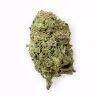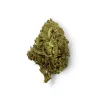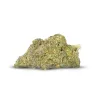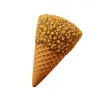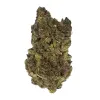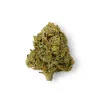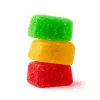Scientists discover new cannabis-derived compounds fairly frequently, making it difficult for users to keep up with the latest cannabis-related discoveries. Despite being discovered just a few years ago, and not much being known about THCB, for example, hemp aficionados have tried the cannabinoid and the verdict is in: they absolutely love it.
But what is THCB? What are its benefits and risks? What makes it different from other cannabinoids, such as delta 9, delta 8, and delta 10?
What is THCB?
Delta-9-tetrahydrocannabutol, or THCB, is a cannabinoid similar to THC, the most abundant psychoactive cannabinoid in hemp and marijuana plants. A team of Italian scientists discovered the compound in 2019 along with THCP, THCH, and other “new” cannabinoids never found before.
THCB is thought to interact with the brain's endocannabinoid system in a similar way to THC, mainly by affecting the CB1 and CB2 receptors. According to the researchers that discovered it, THCB has a stronger affinity for binding to CB1 receptors than THC, which is theorized to be the result of its butyl side chain.
Although the compound was just recently discovered, some small animal tests have been conducted on it, which have shown promising results similar to THC's effects on the human body. In addition to reducing pain and slowing reaction times, researchers have noted potential anti-inflammatory and analgesic effects.
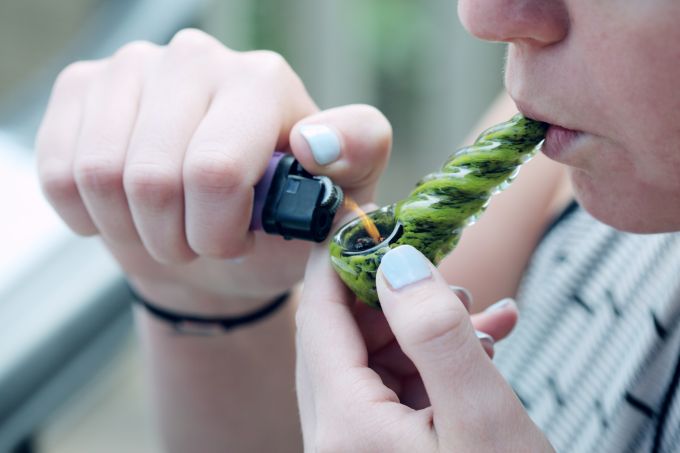
How Strong is THCB?
In spite of the lack of information on this new and exciting compound, THCB is believed to have strikingly similar effects to regular THC, but with one key difference: increased potency. The compound has a higher affinity for cannabinoid receptors because of its butyl side chain, as opposed to delta 9's pentyl side chain, making it much more potent than THC. It is estimated that THCB is roughly as strong as THCP, which is 30x stronger than regular delta 9!
Will THCB Show Up on a Drug Test?
Since there isn't a lot of research on THCB yet, it's hard to say if the compound will trigger a positive drug test for sure. However, as a general rule, if the cannabinoid has the term "THC" in its name, you can assume that it will make you fail a drug test.
Standard drug tests are designed to identify whether a person has used cannabis by detecting the enzyme THC-COOH, which metabolizes all THC-based cannabinoids. As THCB is more potent than delta 9, there is also good reason to believe that it will fail a drug test more easily than THC.
In the event your employer catches you by surprise and you know you have only used THCB, you can explain the situation and the legality of the compound. The company may be open to a retest, but more specific tests that can identify compounds more precisely are more costly and time-consuming, so you should stay away from THCB for a few weeks if a drug test is coming up.
How Long Does THCB Stay in Your System?
We don't yet know how long this cannabinoid stays in the body because there is not enough information available about it. In light of its proximity to delta 9, we can assume that moderate users will find the compound at least five to seven days after last consumption, daily users ten to fifteen days, and heavy, long-term users will find it up to a month after last consumption.
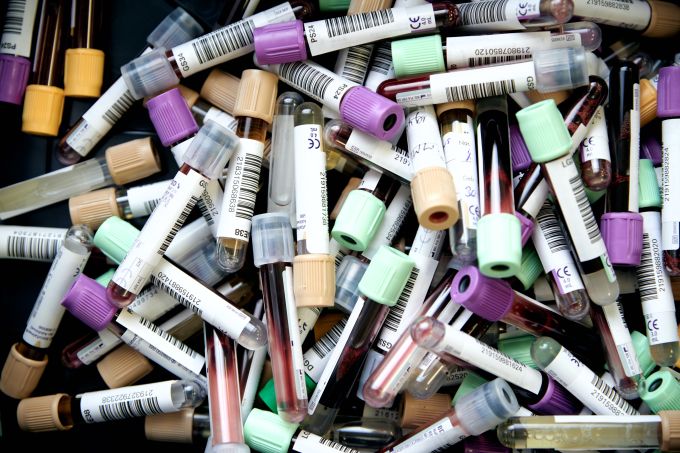
How is THCB Made?
Since THCB occurs naturally in cannabis plants only in trace amounts, it is most commonly synthesized from another cannabinoid in order to produce larger, usable amounts.
A process known as isomerization is most prominent in the production of THCB from hemp-derived cannabinoids like CBD. All cannabinoids have similar molecular structures because they are all derived from cannabigerolic acid (CBGA), sometimes called the "mother cannabinoid." In isomerization, the molecular structure of a compound is rearranged to form a new compound. So, in other words, CBD is extracted from the hemp plant and that extract undergoes a series of chemical changes that turn it into THCB.
Is THCB Safe?
The lack of research indicates that users should exercise caution when using THCB. It is similar to delta 9 but more psychoactive, so its safety profile is likely to be similar to that of the more popular cannabinoid. Despite not being thought to cause any serious long-term effects, you may experience unwanted side effects such as dizziness, dry mouth, or lethargy if you consume too much.
It's important to start low with THCB so that your body can adjust and react. It's extremely potent, so even if you're all about THC, it might not be a good idea to take too much THCB. You can always take more if you dose too low, but once you reach your limit, you can't go back. You'll just have to brave through the side effects until they wear off.
Is THCB Legal?
As a result of the Farm Bill of 2018, hemp and hemp derivatives are considered federally legal in the United States. Under this act, hemp derivatives can be legally sold across the country if they are tested for THC contents of 0.3% or less. As a result, THCB is legal under federal law, but it's not quite that simple.
Intoxicating hemp derivatives are banned or heavily restricted in a handful of states despite the federal government's position. These states include:
- Alaska
- Arizona
- Arkansas
- Colorado
- Delaware
- Hawaii
- Idaho
- Iowa
- Mississippi
- Montana
- Nevada
- New York
- North Dakota
- Oregon
- Rhode Island
- Utah
- Vermont
- Washington State
As a result, if you live in one of these states, you cannot legally purchase THCB products in person or online, which means reputable cannabinoid sources will not ship to you.
Hemp production legalized in new Farm Bill
THCB vs. Other Popular Cannabinoids
THCB is a new compound worth watching out for in the near future. With effects similar to delta 9 but with a higher potency, this cannabinoid is set to become extremely appealing to cannabis users. When compared to better-known cannabinoids like delta 8, delta 9, and delta 10, the main difference is that THCB has a butyl side chain instead of a pentyl side chain, which makes it lightyears stronger than all of these other psychoactive cannabinoids.
THCB is one of the newest cannabinoids making the rounds on the market today, but how else does it compare to the most popular cannabinoids available today?
THCB vs Delta 9
While Delta 9 and THCB have similar chemical structures, the small differences between them make all the difference. The psychoactive strength of THCB is about the same as that of THCP, which is considered 30x stronger than regular THC.
Delta 9 also has the following effects:
- Insomnia relief
- Appetite stimulation
- Anxiety management
- Anti-inflammatory properties
- Analgesic properties
- Relaxation
- Euphoria
THCB vs Delta 8
It is estimated that delta 8 has approximately half the psychoactive potency of delta 9, so its strength cannot even be compared with THCB's. Delta 8 is known for its indica-like high that leaves you feeling sedated, soothed, and relaxed. If you want a little bit of a kick and a lot of chill, this is the compound for you.
The compound's main benefits include:
- Relaxation
- Pain relief
- Appetite stimulation
- Better sleep
- Anxiety relief
- Digestive support
THCB vs Delta 10
As the weakest psychoactive compound on this list, delta 10 is even milder than delta 8. Just like delta 8 resembles indica strains, delta 10 works like a sativa strain. Because of this, the compound is perfect for use during the day, especially if you have a busy schedule. In addition to improving creativity, focus, and energy, it gives you a mild psychoactive kick, so you can blast through your to-do list in no time.
Its main effects include:
- Stress relief
- Relaxation
- Uplifting properties
- Euphoria
- Increased focus and creativity
- Energy boosts
THCB vs CBD
In comparison to THCB, CBD is perhaps the most different compound on this list. Unlike delta 8, delta 9, and delta 10, CBD is non-psychoactive, so it doesn't get you high at all. It has long been used by humans in wellness circles for its many benefits and is beloved for its many benefits. The compound gives you a boost that, although not psychoactive, is still incredibly noticeable.
The effects of CBD include:
- Anti-stress
- Muscle relaxant
- Anti-nausea
- Sleep regulation
- Analgesic
- Inflammation relief
The compound has even been shown to be effective against rare cases of epilepsy that do not respond to traditional medical approaches. In 2018, Epidiolex, the first drug made with CBD, was approved to treat rare and severe cases of epilepsy.
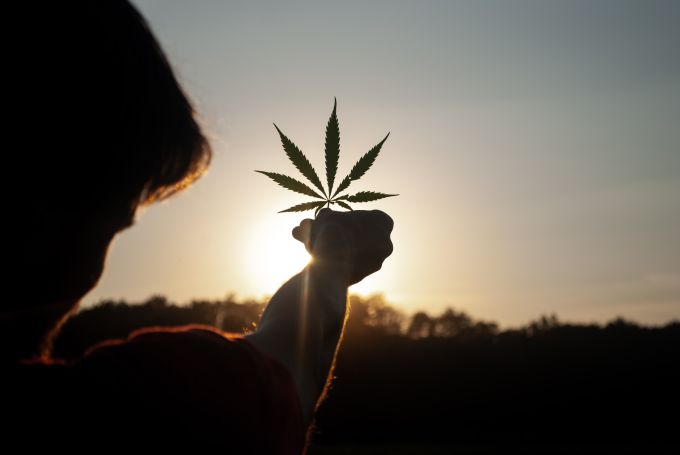
Final Thoughts
While relatively new, THCB certainly has the potential to become a market giant in the coming years. THCB has similar effects to delta 9— including deep sleep, anti-inflammatory effects, and pain relief—and a gargantuan potency that makes it a perfect candidate for those who want to experience a high unlike any other.

